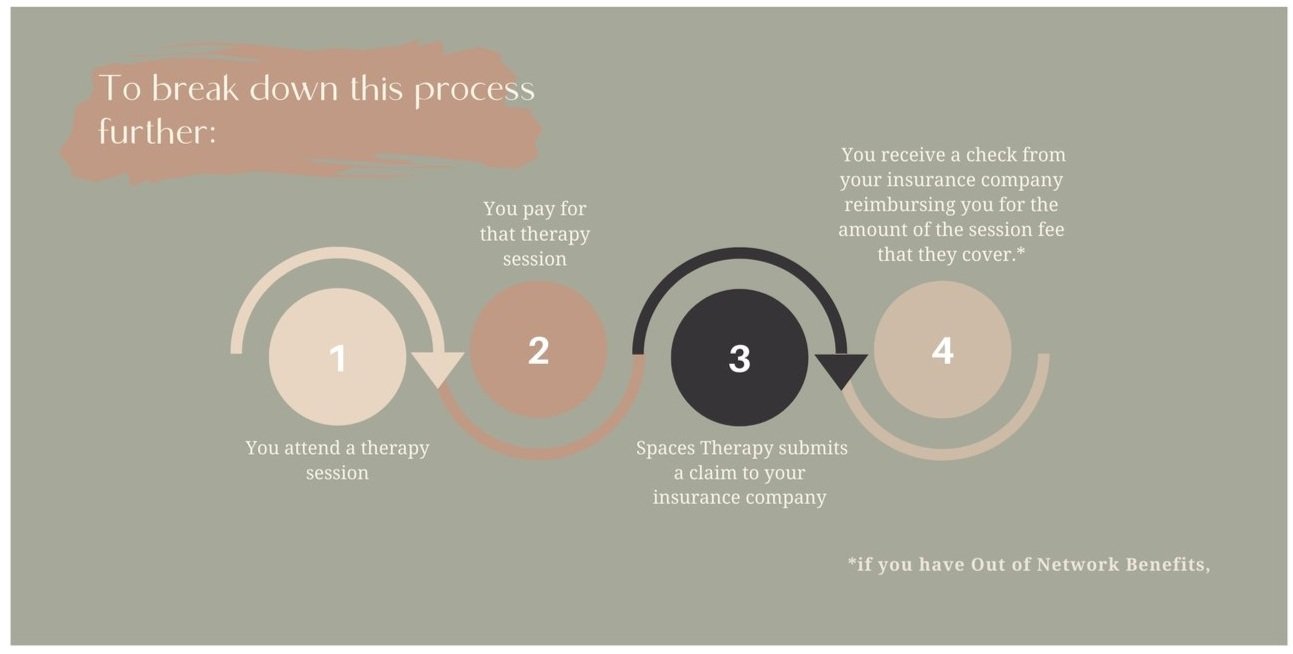Why We Don’t Accept Insurance Payments
As a practice, our values are to create a therapeutic environment that balances sustainability, inclusivity, and empowerment. Accessibility is an important part of this and while working with insurance providers is one way to increase access to therapy, it comes with notable limitations. As a result, our practice has made the conscious decision to not directly accept it. Our main reasons for this include maintaining therapist sustainability, protecting client privacy and agency, and preserving clinical autonomy. (More on these below.)
Making Therapy Accessible
This being said, accessibility is still a major priority and we strive to maintain it in three ways. First, all of our therapists allot low fee openings for 20% of their caseload. Second, we offer a number of groups, workshops and events that are low fee and low commitment. Third, if you have out-of-network benefits, we will submit claims on your behalf.
If you have out-of-network benefits, here is how that process works:
After each session, we create a Claim form that we then submit directly to your insurance provider, so you can receive reimbursement according to your plan’s out-of-network benefits. Please note that if you do decide to submit to your insurance company for reimbursement- they will require a diagnosis from us. While we are not required to submit session notes or treatment plans, if a formal diagnosis could negatively impact your career, you may decide not to utilize insurance even for reimbursement.
We have partnered with Mentaya to help clients understand their out-of-network benefits to save money on therapy. Use the tool below to see if you qualify for reimbursement for therapy. (Please note, the fees we have in the Mentaya tool are for reference but may be higher or lower than what you will actually pay for therapy.)
Now, some notes on sustainability, client agency, and clinical autonomy.
SUSTAINABILITY
Insurance reimbursement rates for therapists are typically very low and often not sufficient to sustain a livable wage without maintaining a large caseload (especially in a city like Los Angeles). While each person has different limitations, burnout is a serious issue in this industry and something that our practice is committed to preventing for the sake of clinicians and clients alike. In contrast, we strive to ensure that our therapists are fairly compensated, allowing them to provide quality care without the strain of overfull caseloads and financial hardship.
CLIENT AGENCY & FLEXIBILITY
Insurance requires there to be a “medically necessary” diagnosis in order to reimburse, and because those standards are high, it often limits people being able to get access to care that could be substantially helpful to them, whether or not they meet "medical necessity". As therapists, we cannot create a diagnosis where there is not one, so paying out of pocket allows flexibility for clients seeking services for a range of needs.
In addition, when pursuing any kind of benefits (be they disability, unemployment, insurance reimbursement, and so on) there can be regular requests for records. These can include session notes, treatment plans, and diagnoses. The intention behind this is to ensure that the therapy being provided is meeting standards for reimbursement. In all of these cases, our clinicians are committed to keeping you informed of the risks to your confidentiality and protecting your agency in choosing how to respond. Not working directly with insurance companies is in line with this practice and ensures that a client can choose what and when to seek reimbursement knowing that disclosing diagnoses and records are part of the process.
CLINICAL AUTONOMY
Ultimately, our goal is to create a therapeutic environment that prioritizes competent and quality care above all else. As described above, when working with insurance companies there are limits to what is deemed “medically necessary” as well as other constraints like how many sessions and what type of treatment will be covered. Thus, it is useful to maintain the flexibility for clinicians and clients to evaluate and decide the length and form that treatment assumes.
Questions/Discussion
If you have any questions or would like to discuss how this process works in more detail, please don’t hesitate to reach out or talk with your therapist. We’re here to support you every step of the way, and are always interested in talking through our values and approach. Thank you for entrusting us with your care!

